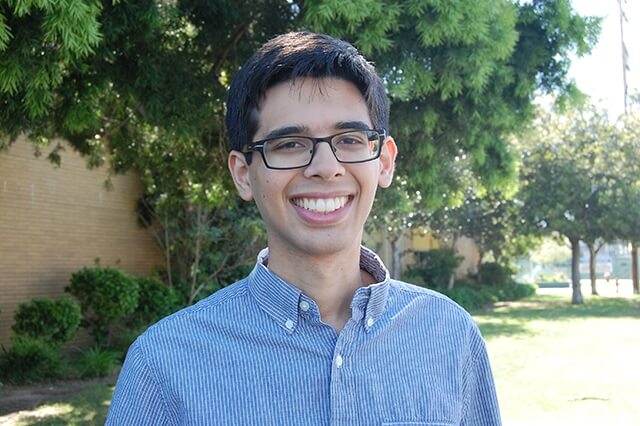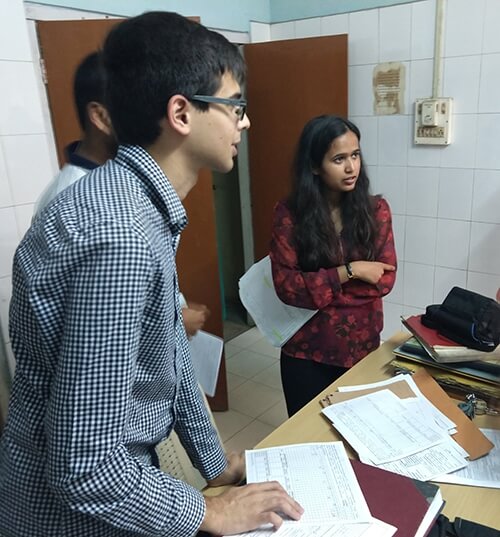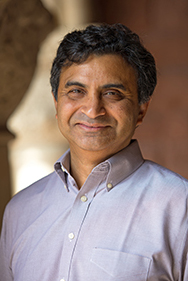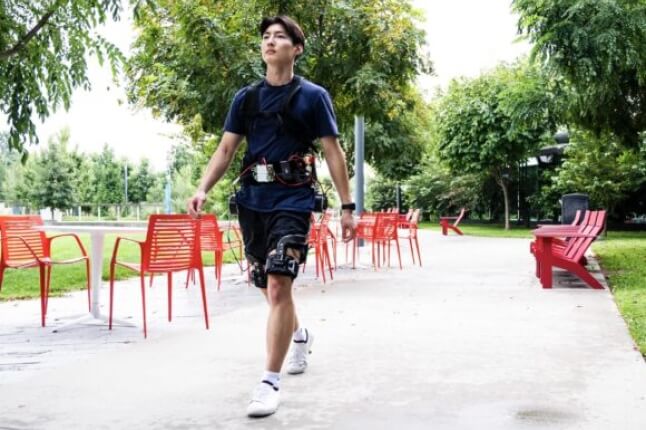News
Computer science graduate student Bryan Wilder is using artificial intelligence to stem the spread of HIV among homeless youth. (Photo provided by Bryan Wilder)
Crisis drop-in centers are on the front lines in the fight to reduce HIV prevalence among homeless youth, which is estimated to be about 2.3 percent—far higher than the national average, according to the National Coalition for the Homeless.
It is a monumentally difficult task, which staff tackle by training small groups of homeless youth as peer leaders who share HIV prevention information with their social networks.
While the problem is deeply human in nature, artificial intelligence could help mitigate the crisis, said Bryan Wilder, a computer science Ph.D. candidate at the Harvard John A. Paulson School of Engineering and Applied Sciences. He is building machine learning tools to identify the “best” youth for staff to train.
“Computationally, we want to identify the most influential youth so we can get the biggest return on the limited resources that we have,” said Wilder, who works in the lab of Milind Tambe, Gordon McKay Professor of Computer Science. “Staff can only train so many people. We want to do this in a way that is robust to the very limited information that we have.”
Based on data from intake surveys, Wilder developed algorithms that can determine who is connected to whom, and who is most influential in different social groups.
The algorithms must be intricately designed to reason robustly, given the high level of uncertainty in the data, and identify decisions that perform well no matter how the social network is configured, he explained.
It is a complex problem made even more difficult by its human-centered nature.
“Things happen in the real world that you won’t find out about until you actually start to apply the algorithms, and then that sends you back to the drawing board,” he said. “You can invite homeless youth for an intervention, but when you are working with vulnerable populations, there are a lot of contingencies that can happen. For instance, someone may not have enough money for a bus ticket to come to the center that day. Your algorithm needs to reason about the possibility that there are all these things that can go wrong in the real world.”
Wilder and his collaborators recently conducted a field test of their model at a busy drop-in center in Los Angeles.
Things happen in the real world that you won’t find out about until you actually start to apply the algorithms, and then that sends you back to the drawing board.
They found that using artificial intelligence to identify peer leaders led to significantly higher rates of behavior change than the status quo, which involved staff picking the most popular youth based on anecdotal evidence.
Wilder performs data collection at one of the homeless youth drop-in centers in Los Angeles. (Photo provided by Bryan Wilder)
“If you think of just talking to the people who are most popular, that often means that you are just talking to people from a single clique,” he said. “That is not the most effective group to spread the message—you would rather have people who cover different portions of the network.”
Initial results in hand, Wilder is looking to lower the cost of deployment by reducing the amount of information the model needs to run effectively. He is also considering how the algorithms can be applied at a larger scale.
It’s an exciting prospect for Wilder, who joined the Tambe lab because he wanted to work on research that could be directly applied to societal problems.
A computer science major at the University of Central Florida, Wilder saw optimization and machine learning as a way to make a positive impact.
He was introduced to research through an internship at the nonprofit Santa Fe Institute. Wilder developed computational models for cultural evolution, exploring how people transmit cultural beliefs and practices and whether they change over time.
“I was trying to make inferences from very high level data,” he said. “After looking at summaries of how many people did things a certain way at different points in time, I wanted to get back at the underlying mechanism, but there are a lot of things that could have produced those observations.”
Wilder applied those lessons to research projects at UCF related to social networks, which inspired him to pursue a Ph.D. in the Tambe lab.
The HIV research project immediately appealed to him.
“That gave me a chance to do research in a much more applied way than I had before. I could go and talk to the social workers, visit the drop in centers that provided the services for the homeless youth, and really see the domain first hand,” he said. “If I could come up with algorithms that worked, there was a real possibility of being able to make a difference.”
Wilder meets with officials at a tuberculosis unit in Assam, India. (Photo provided by Bryan Wilder)
As the HIV project continues, Wilder has turned his attention to other applications of “AI for good.” He and his collaborators recently started applying machine learning to improve medication adherence among tuberculosis patients in India.
These patients are required to take a six-month course of antibiotics, but for a variety of reasons, from apathy to financial hardship, patients often stop taking their required doses, which can lead to reinfection and could create antibiotic-resistant strains of the disease, Wilder explained.
“Health workers try to keep an eye on patients, but they are often overwhelmed. They have too many people to check in regularly with them all,” he said. “So we are trying to build the tools to help them figure out which patients are at higher risk of non-adherence so they can efficiently optimize the use of their time.”
The applied nature of the research is especially enjoyable for Wilder, who visits health care workers in the field to learn about the problem space, then applies those lessons in the lab as he refines the algorithms.
While he hasn’t yet settled on his post-Ph.D. plans, this work inspires him to keep finding ways to use AI for good.
“One aspect that is so important, but that I think remains underappreciated in computer science, is the significant possibility for academic researchers to make an impact,” he said. “That is something that I find really rewarding. It is also something that I think pushes the field in directions that you wouldn’t see otherwise, if the work were decoupled from the actual applications.”
Topics: AI / Machine Learning, Computer Science, Health / Medicine
Cutting-edge science delivered direct to your inbox.
Join the Harvard SEAS mailing list.
Scientist Profiles
Milind Tambe
Gordon McKay Professor of Computer Science
Press Contact
Adam Zewe | 617-496-5878 | azewe@seas.harvard.edu






